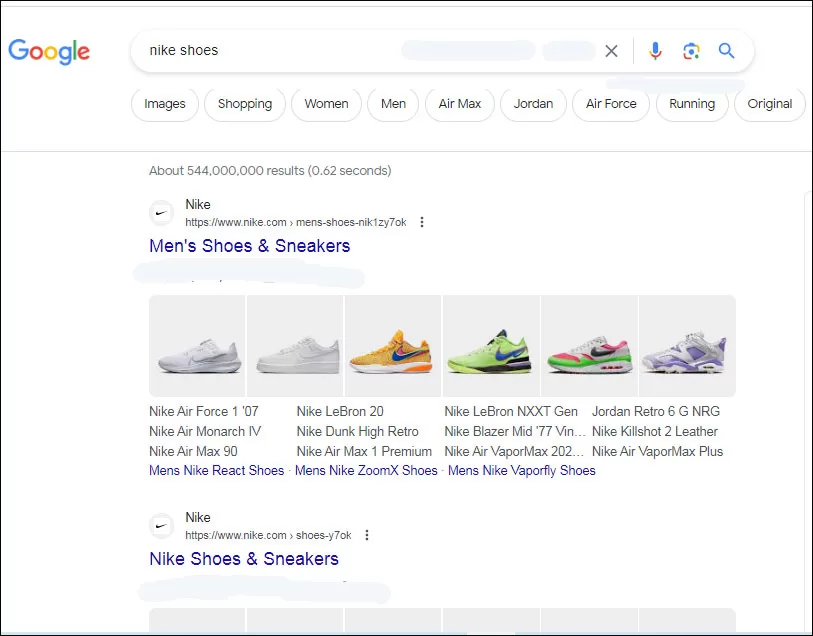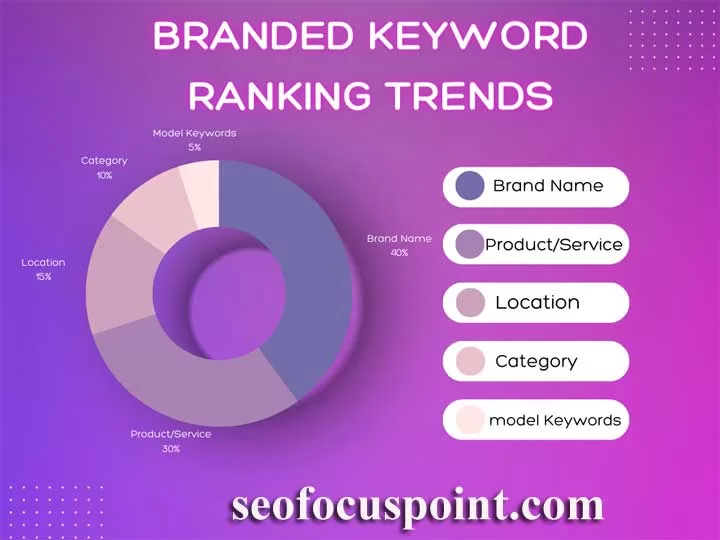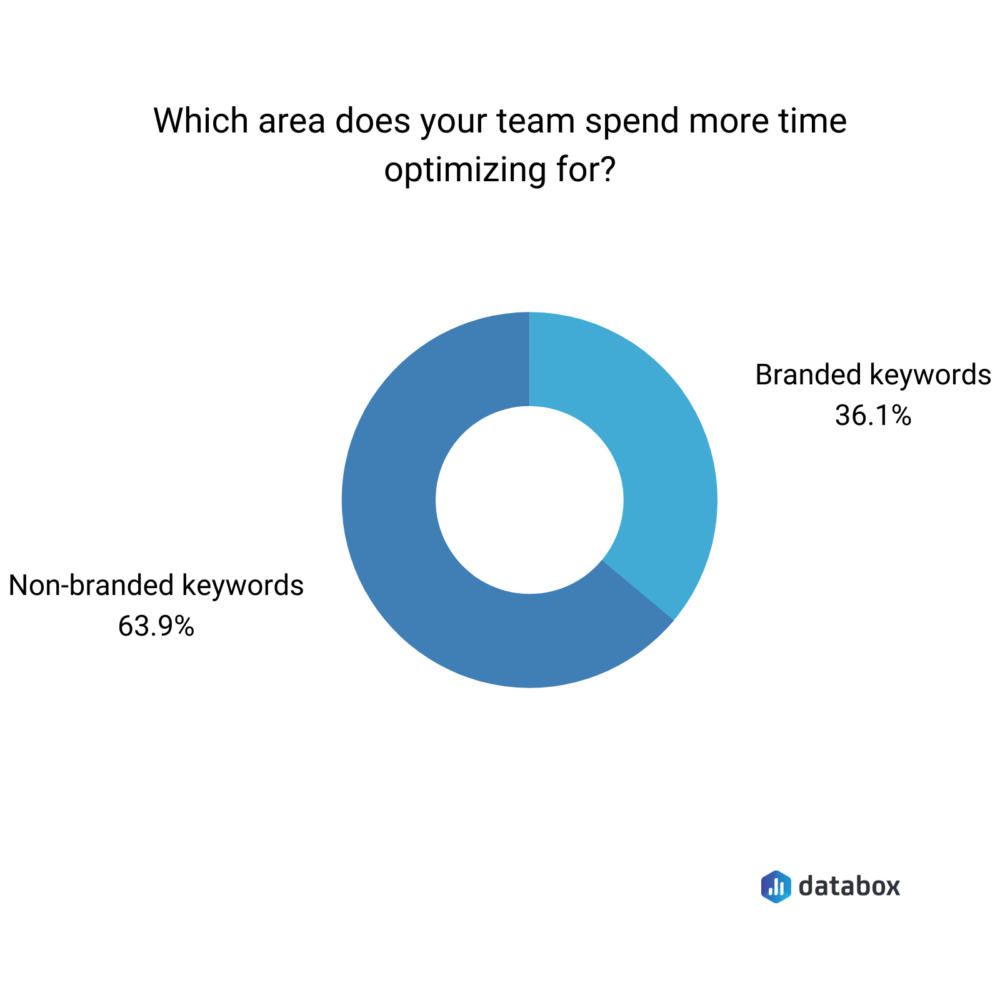Branded keywords are mainly your business or brand name-related keywords. If you search for SEO Focus Point in Google or any other search engine, our website will appear first on SERP. Because this is our branded keyword and optimized for our brand.
You may think, what’s the matter? This is my own keyword and I will obviously rank for it. No, you are wrong! Suppose, your business domain name is xyz.com and other businesses may have xyz.net, xyz.org, etc. Now tell me who will own the keyword “XYZ”? The answer is simple the brand will rank number#1, which is optimized for the keyword.
In this article, we will discuss, what are branded keywords and How you can optimize them for your business to drive lots of traffic and build brand awareness.
What are Branded Keywords?
Table of Contents
Branded keywords refer to specific terms or phrases that include a company’s brand name or trademark. These keywords are unique to a particular brand and are often used in online searches by users who are specifically looking for information or products related to that brand.
When people use branded keywords in their search queries, they are demonstrating a strong intent to interact with or learn more about a specific brand. For example, if someone searches for “Nike shoes,” they are using a branded keyword to find information specifically about Nike’s shoe products.

Using branded keywords strategically can be beneficial for businesses as it helps increase brand visibility, drives targeted traffic to their website, and fosters brand recognition and loyalty among potential customers. Additionally, incorporating branded keywords into online marketing campaigns, such as search engine optimization (SEO) or pay-per-click (PPC) advertising, can enhance the effectiveness of these efforts by reaching a more focused and interested audience.
Overall, branded keywords play a crucial role in digital marketing strategies, enabling businesses to capitalize on their brand name and create a strong online presence among their target audience.
Types of Branded Keywords
There are several types of branded keywords that businesses can target in their SEO and marketing efforts. Here are some common types:

- Brand Name Keywords: These are keywords that include the exact brand name or variations of it. For example, “Nike shoes” or “Apple iPhone.”
- Product or Service Keywords: These are keywords that include specific products or services offered by a brand. For example, “Coca-Cola soda” or “Amazon Prime.”
- Brand Name + Location Keywords: These keywords combine the brand name with a specific location, targeting local customers. For example, “Starbucks New York” or “McDonald’s London.”
- Brand Name + Category Keywords: These keywords combine the brand name with a broader category or industry. For example, “Sony headphones” or “Samsung smart TVs.”
- Brand Name + Review Keywords: These keywords include the brand name along with terms like “reviews” or “ratings.” For example, “Tesla Model 3 reviews” or “iPhone 12 Pro ratings.”
- Brand Name + Competitor Keywords: These keywords involve the brand name along with the names of competitors. For example, “BMW vs. Mercedes” or “Nike vs. Adidas.”
- Brand Name + Year/Model Keywords: These keywords include the brand name along with specific years or models. For example, “Ford Mustang 2022” or “Sony PlayStation 5.”
By targeting these different types of branded keywords, businesses can capture a wide range of search queries and attract users who are specifically interested in their brand or products/services.
How branded keywords contribute to SEO efforts
Branded keywords play a significant role in enhancing SEO efforts for businesses. Here are a few ways they contribute to search engine optimization:
- Increased Visibility: When users specifically search for a brand or its products/services using branded keywords, search engines recognize the relevance and display the brand prominently in search results. This increases the brand’s visibility to potential customers and boosts organic traffic to the website.
- Higher Click-Through Rates (CTRs): Branded keywords often have higher click-through rates because users who search for a specific brand are more likely to click on the brand’s website when it appears in search results. This signals to search engines that the brand is relevant and authoritative, further improving its search rankings.
- Enhanced User Experience: Users who search for branded keywords usually have a specific intent related to the brand. By optimizing web pages and content around these keywords, businesses can create a tailored user experience that meets the needs and expectations of their target audience. This leads to increased user engagement, longer site visits, and a lower bounce rate, which are positive signals for SEO.
- Competitive Advantage: Targeting branded keywords helps businesses establish a competitive advantage by securing top positions in search engine rankings for their own brand terms. This prevents competitors from occupying those positions and ensures that users looking for their brand find their website first.
- Brand Authority and Trust: A strong presence in search results for branded keywords helps build brand authority and trust among users. When a brand consistently appears at the top of search results, it reinforces its credibility and reliability, encouraging users to choose and engage with the brand over others.
- Social Proof and Reviews: Branded keywords often include terms like “reviews” or “testimonials,” allowing users to find feedback and social proof related to the brand. Positive reviews and testimonials strengthen the brand’s reputation, influence user decisions, and ultimately improve SEO by driving more organic traffic.
Incorporating branded keywords into on-page SEO elements, such as meta tags, headings, and content, as well as off-page SEO activities like link building, can significantly contribute to overall SEO success for a brand.
Difference between branded and generic keywords
Differentiating between branded and generic keywords is essential for developing a comprehensive SEO strategy. While branded keywords help strengthen a brand’s presence and loyalty, generic keywords are valuable for capturing a wider audience and driving organic traffic to a website. A well-balanced approach incorporating both types of keywords can lead to a more effective SEO campaign.
| Branded Keywords | Generic Keywords | |
|---|---|---|
| Definition | Specific terms or phrases that include a company’s brand name or trademark | General terms that describe a product, service, or topic without associating it with a particular brand |
| Intent | Users searching for a specific brand or its products/services | Users searching for information or solutions without a specific brand in mind |
| Search Volume | Typically lower search volume due to their specificity | Higher search volume as they target a broader audience |
| Competition | Lower competition as they are unique to a particular brand | Higher competition as multiple brands or businesses may target the same generic keywords |
| Click-Through Rates | Generally higher click-through rates as users searching for a brand are more likely to click on brand-related results | Lower click-through rates as users may need to evaluate multiple options before making a choice |
| Conversion Rates | Higher conversion rates as users searching for a brand are often further along the buying journey and have a stronger intent to engage with the brand | Lower conversion rates as users may be in the initial research or exploration stage |
| Brand Visibility | Enhances brand visibility and recognition among targeted users | Provides visibility to a wide range of brands or businesses offering similar products/services |
| SEO Strategy | Important for brand-specific SEO strategies and online reputation management | Crucial for broader SEO strategies and capturing a larger market share |
Steps in Choosing Branded Keywords
Before we delve into the steps, it’s crucial to understand the power of branded keywords in SEO. These specific terms associated with your brand can significantly boost your visibility, attract targeted traffic, and drive conversions. Now, let’s explore the steps to choosing the perfect branded keywords for your brand’s SEO success.
Step 1: Understand Your Brand and Target Audience
- Define your brand’s core values, unique selling propositions, and key offerings.
- Identify your target audience, their demographics, interests, and search behaviors.
Step 2: Brainstorm Brand-Related Keywords
- Make a list of words and phrases directly associated with your brand.
- Include your brand name, product names, taglines, and any unique terms associated with your business.
Step 3: Analyze Competitor Keywords
- Research your competitors’ branded keywords.
- Use SEO tools or search engine results to identify the keywords they are targeting.
Step 4: Conduct Keyword Research
- Utilize keyword research tools such as Google Keyword Planner, SEMrush, or Moz Keyword Explorer.
- Look for search volume, competition level, and relevance to your brand.
Step 5: Prioritize Relevance and Search Volume
- Choose branded keywords that align closely with your brand identity and offerings.
- Consider the search volume of keywords to ensure they have a decent amount of search traffic.
Step 6: Long-Tail Keyword Exploration
- Explore long-tail variations of your branded keywords.
- Long-tail keywords are more specific and targeted, often attracting highly interested users.
Step 7: Consider User Intent
- Evaluate the intent behind each branded keyword.
- Determine whether users are looking for information, making a purchase, or seeking a specific service.
Step 8: Analyze Keyword Difficulty and Competition
- Assess the difficulty level and competitiveness of the branded keywords.
- Tools like Moz or Ahrefs can provide insights into the keyword difficulty score and competition analysis.
Step 9: Incorporate Location-Specific Keywords
- If your brand operates in specific locations, consider adding location-based keywords to target local audiences.
Step 10: Test and Refine
- Implement the selected branded keywords into your website content, meta tags, headings, and URLs.
- Monitor their performance using analytics tools and make adjustments based on data and user behavior.
Step 11: Track and Measure Results
- Regularly monitor the ranking, organic traffic, and conversions generated by your branded keywords.
- Analyze the data to determine the effectiveness of your chosen keywords and make necessary optimizations.
Remember to adapt these steps to your specific brand and industry, continuously adapt your branded keyword strategy based on data and trends, and stay up to date with the evolving SEO landscape.
Best Practices for Branded Keyword Optimization
Optimizing branded keywords can significantly improve your brand’s online visibility and drive targeted traffic to your website. Here are some best practices for branded keyword optimization:
Include Branded Keywords in Page Titles
Incorporate your brand name or trademark in the page titles of your website. This helps search engines understand the relevance of your brand to specific search queries and increases the likelihood of appearing in branded keyword search results.
Optimize Meta Descriptions
Craft compelling meta descriptions that include your branded keywords. Meta descriptions appear in search results and can influence click-through rates, so make them concise, informative, and enticing to encourage users to click on your link.
Create Branded Landing Pages
Develop dedicated landing pages on your website that focus on specific branded keywords. These pages can provide in-depth information about your brand, products, or services, making it easier for search engines to associate your brand with those keywords.
Build High-Quality Backlinks
Earn backlinks from authoritative and relevant websites to strengthen your brand’s online presence. Backlinks from reputable sources can improve your search rankings for branded keywords and enhance your brand’s credibility in the eyes of search engines and users.
Monitor Brand Mentions
Keep track of mentions of your brand across various online platforms, including social media, forums, and review sites. Respond promptly to both positive and negative mentions to maintain a positive brand image and engage with your audience.
Leverage Social Media
Optimize your social media profiles and posts by incorporating branded keywords naturally. Consistently sharing valuable content related to your brand using branded keywords can improve your visibility in social media search results.
Encourage User Reviews
Encourage satisfied customers to leave reviews and testimonials using your branded keywords. Positive reviews associated with your brand name can not only boost your search rankings but also instill trust and confidence in potential customers.
Monitor and Analyze Performance
Regularly monitor the performance of your branded keywords using analytics tools. Analyze the traffic, engagement, and conversion metrics associated with these keywords to identify areas for improvement and refine your branded keyword optimization strategy.
Remember, while branded keyword optimization is important, it should complement a comprehensive SEO strategy that also includes non-branded or generic keywords to capture a wider audience and increase organic reach.
Future Trends and Considerations
Considering future trends and evolving considerations is crucial for effective branded keyword optimization. Here are some key areas to focus on:

Source: databox
- Voice Search Optimization: As voice assistants and smart devices become increasingly popular, optimizing branded keywords for voice search is essential. Voice searches are often conversational and longer, so optimizing content to align with natural language queries will be important.
- Mobile-Friendly Optimization: With the majority of internet users accessing information through mobile devices, ensuring your website and content is mobile-friendly is vital. Mobile optimization directly impacts user experience and search rankings, so make sure your branded keywords perform well on mobile platforms.
- Local SEO: As the local search continues to grow, optimizing branded keywords for local intent becomes crucial for businesses targeting specific geographical locations. Utilize location-specific keywords and ensure your business information is accurate and consistent across online directories.
- Featured Snippets and Structured Data: Featured snippets are becoming more prominent in search results. Structured data markup helps search engines understand your content better, increasing the chances of your brand appearing in these snippets. Optimize your content with structured data to increase visibility and drive traffic.
- User Experience (UX): User experience plays a vital role in search engine rankings. Factors such as page load speed, mobile responsiveness, intuitive navigation, and engaging content influence user behavior. Prioritize UX optimization to enhance brand visibility, user engagement, and overall SEO performance.
- Personalization and Behavioral Targeting: With advancements in AI and machine learning, search engines can provide more personalized search results. Consider user preferences, behavior, and demographics when optimizing branded keywords. Tailor your content to deliver personalized experiences and cater to specific audience segments.
- Visual and Video Optimization: Visual and video content continue to gain popularity. Optimize branded keywords for visual search and video platforms, such as YouTube. Use relevant tags, descriptions, and captions to increase visibility and attract a wider audience.
- Ethical Considerations: In the era of data privacy and consumer trust, ethical considerations are crucial. Ensure compliance with data protection regulations and prioritize transparency and trust-building initiatives to maintain a positive brand reputation.
- Voice and Branding: With the rise of voice assistants and audio content, consider how your brand voice and branding elements translate into audio experiences. Develop sonic branding strategies and optimize for branded voice commands to maintain consistency across different touchpoints.
- Emerging Technologies: Keep an eye on emerging technologies such as augmented reality (AR), virtual reality (VR), and artificial intelligence (AI). Explore how these technologies can enhance branded keyword optimization and user experiences in innovative ways.
By staying informed about future trends and adapting your branded keyword optimization strategy accordingly, you can position your brand for success in an evolving digital landscape. Regularly monitor industry developments and consumer behavior to stay ahead of the curve.
FAQs:
-
What are branded keywords for SEO?
Answer: Branded keywords for SEO are specific terms or phrases that include a company’s brand name or trademark. These keywords are used to optimize web pages and content, aiming to increase the brand’s visibility and drive targeted traffic to its website. By incorporating branded keywords strategically, businesses can enhance their online presence, attract potential customers who are specifically searching for their brand, and foster brand recognition and loyalty.
-
How do you identify branded keywords?
Answer: To identify branded keywords, you can employ several methods. Start by analyzing your website content and look for explicit mentions of your brand name or trademark. Monitor internal search queries on your website to discover the keywords users associate with your brand. Utilize Google Search Console data to identify search queries that drive organic traffic to your site.
Conduct competitive analysis to identify keywords associated with your competitors’ brands. Monitor social media platforms for brand mentions and examine the keywords used in discussions about your brand. Additionally, leverage keyword research tools to explore keywords related to your brand. Focus on keywords specific to your brand name, trademarks, product names, and unique offerings.
-
What are branded keywords in Google Ads?
Answer: Branded keywords in Google Ads are specific terms or phrases that include a company’s brand name or trademark. Advertisers bid on these keywords to ensure their ads appear when users search for their brand or related terms. By targeting branded keywords, businesses can maintain a strong presence in search results for their brand, protect their brand reputation, and capture highly relevant and motivated traffic.
Branded keyword campaigns often result in higher click-through rates (CTRs) and conversion rates due to the targeted nature of the audience. It is important for businesses to actively manage and optimize their branded keyword campaigns to maximize visibility, and brand recognition, and drive qualified traffic and conversions.
Conclusion
Branded keywords are a powerful SEO secret weapon for businesses, increasing brand visibility, attracting targeted traffic, and fostering brand loyalty. By optimizing branded keywords strategically, businesses can stay ahead of evolving trends and achieve higher organic traffic and conversions. Subscribe to our newsletter to stay updated on the latest SEO strategies and unlock the full potential of branded keywords for your business.

